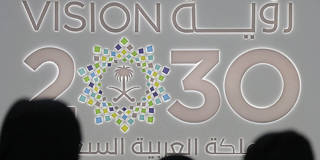With its Vision 2030 plan, Saudi Arabia is attempting to move away from economic dependence on hydrocarbons. Given the vast resources that the kingdom is deploying, the enthusiasm shown by young Saudis, and the speed at which reforms are moving forward, the strategy could ultimately benefit the entire Middle East.
JEDDAH/DOHA – An unprecedented experiment in economic and social transformation is playing out in Saudi Arabia, and the outcome could have profound implications for the entire Arab world. The main goal of the kingdom’s Vision 2030 plan is to shift the economy away from fossil fuels. It is a timely pivot, given that greenhouse-gas emissions must be reduced by 45% by 2030 and reach net zero by 2050 to achieve the Paris climate agreement’s goal of limiting global warming to 1.5° Celsius.

JEDDAH/DOHA – An unprecedented experiment in economic and social transformation is playing out in Saudi Arabia, and the outcome could have profound implications for the entire Arab world. The main goal of the kingdom’s Vision 2030 plan is to shift the economy away from fossil fuels. It is a timely pivot, given that greenhouse-gas emissions must be reduced by 45% by 2030 and reach net zero by 2050 to achieve the Paris climate agreement’s goal of limiting global warming to 1.5° Celsius.